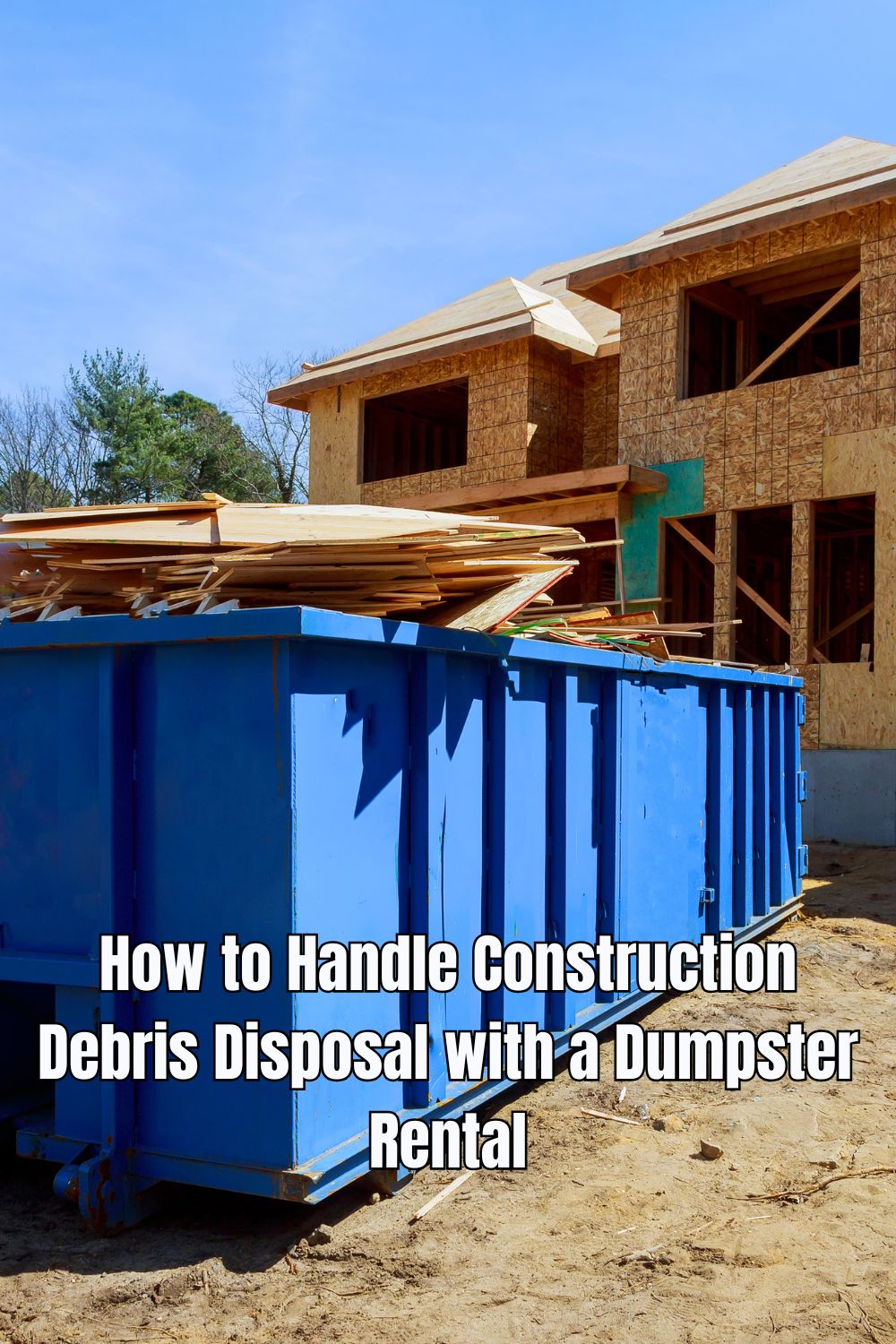Are you looking for removal of construction How to Handle Construction Debris Disposal with a Dumpster Rental
How to Handle Construction Debris Disposal with a Dumpster Rental
Handling construction debris might not be the first thing you think about when planning a project, but trust me—it’s a big deal. Whether you’re remodeling a kitchen, tearing down a shed, or working on a major construction site, dealing with the mess can quickly become overwhelming. Have you considered how you’ll get rid of all that waste?
Why Bother with a Dumpster Rental?
You might think, “Can’t I just haul the debris myself?” Sure, you could, but think about the time, effort, and multiple trips to the dump. A construction dumpster rental simplifies everything. Picture this: one big container, delivered to your site, ready to take all your junk. Done. No back-and-forth drives, no overloaded car trunks, and no worrying about where to dispose of materials. Plus, dumpster services often ensure proper waste disposal, which is great for the environment.
Choosing the Right Size Dumpster
Size matters—especially when it comes to dumpsters. The last thing you want is to rent one that’s too small and end up needing another, or one that’s unnecessarily large, costing you extra. Dumpster sizes typically range from 10 to 40 cubic yards. But how do you decide?
- 10-yard dumpster – Perfect for smaller jobs, like cleaning out a garage or handling light renovation debris.
- 20-yard dumpster – A versatile choice, great for medium-sized projects like roofing or a kitchen remodel.
- 30-yard dumpster – Best for larger construction jobs or whole-house cleanouts.
- 40-yard dumpster – Ideal for massive projects, like commercial demolition or new builds.
Not sure which size to go for? Most dumpster rental companies are happy to guide you. A quick phone call can save you from a lot of guessing.
What Can You Toss in the Dumpster?
Now, here’s where things can get a little tricky. Not all materials are fair game. Most construction debris—think wood, drywall, concrete, bricks, and metal—can go straight into the dumpster. But hazardous materials like asbestos, paint, and chemicals are a no-go. If you’re unsure about certain items, always check with your rental provider. They’ll have a clear list of what’s allowed and what isn’t.
How to Maximize Your Dumpster Space
Let’s talk strategy for a minute. You’ve got a dumpster on-site, and you want to make the most of it, right? Here are some tips to maximize the space:
- Break things down – Cut wood, drywall, and large items into smaller pieces. It’s amazing how much more you can fit when things are compact.
- Start with flat items – Lay down things like plywood or flat boards first to create a solid base.
- Layer strategically – Place heavier items at the bottom and lighter ones on top. This keeps everything stable and uses space efficiently.
- Don’t overfill – While it’s tempting to stack debris as high as possible, dumpsters have fill lines for a reason. Overfilled dumpsters can’t be safely transported, and you may face extra fees.
Timing Your Rental
When should you schedule your dumpster delivery? Timing is everything. If it arrives too early, it could get in the way or tempt you to fill it with random junk before the project even begins. Too late, and you’ll have debris piling up with nowhere to put it. Aim to have the dumpster delivered a day or two before you start the heavy work, so it’s ready to go when you are.
Another tip? Keep an eye on the rental period. Most companies offer a set timeframe—like a week or two—so plan accordingly. If you think you’ll need more time, ask about extensions when booking.
Environmental Benefits
Did you know that many dumpster rental services sort through the debris for recyclable materials? Instead of everything going to a landfill, items like metal, wood, and concrete can often be recycled. By renting a dumpster, you’re not only saving yourself a headache but also contributing to eco-friendly waste management.
Costs and Budgeting
Let’s be real—costs matter. Dumpster rental fees usually depend on size, location, rental period, and the type of debris you’re disposing of. It’s a good idea to shop around and compare quotes, but don’t just go for the cheapest option. Make sure the company is reliable and clear about fees. Some companies might include delivery, pick-up, and disposal costs in their price, while others add these on separately. Ask upfront to avoid surprises.
Making It Stress-Free
Renting a dumpster doesn’t have to be complicated. Start by assessing your project’s needs, choosing the right size, and coordinating delivery. From there, keep the dumpster organized, follow the guidelines on what you can toss, and watch your project run more smoothly.
Think about how much easier it will be to focus on the actual construction work when you’re not worried about the mess piling up. With a dumpster rental, you’ve got one less thing to stress about.
Take Control of Your Project
Construction work comes with its fair share of challenges, but debris disposal doesn’t have to be one of them. A dumpster rental is a practical, efficient solution that keeps your site clean and your project running smoothly. Whether it’s a small home renovation or a large-scale construction job, having a plan for debris disposal makes all the difference. So, why not make it easy on yourself? Rent the dumpster, get rid of the waste, and focus on the work that really matters.

Leave A Reply!